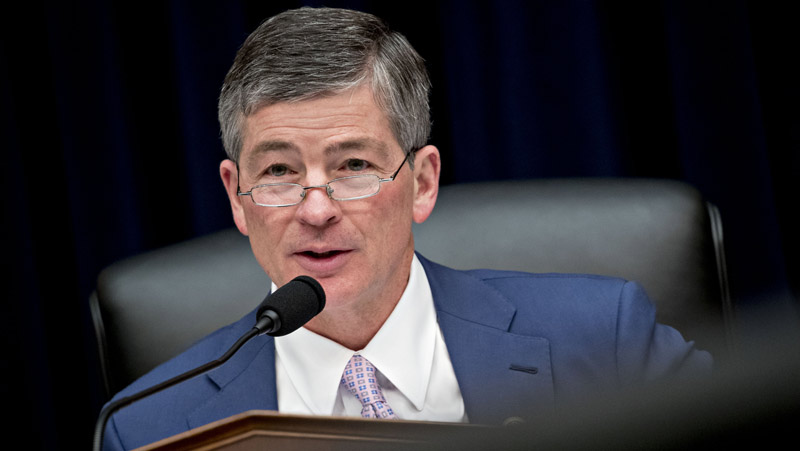
 Rep. Jeb Hensarling, R-Texas. (Photo: Bloomberg)
Rep. Jeb Hensarling, R-Texas. (Photo: Bloomberg)
Editor's note: This column first appeared in Human Capital, a newsletter by Washington Bureau Chief Melanie Waddell about the people who shape the financial regulatory space.
Bank regulatory reform is in the air with the House set to vote (Tuesday, it's been said) on what's been dubbed the Dodd-Frank rollback bill: the Economic Growth, Regulatory Relief and Consumer Protection Act (S.2155).
House Financial Services Committee Chairman Jeb Hensarling told Politico Live on Thursday that passage of the legislation will "be the most significant pro-growth banking reform since Graham-Leach-Bliley."
But the Republican lawmaker from Texas, who's not seeking re-election, says S.2155 doesn't go far enough in its capital formation attempts, so he'll be pushing for a "JOBS 3.0" (Jumpstart Our Business Startups Act) follow-up package to hit the House floor in the summer.
This week's Human Capital takes a look at Hensarling's legislative swan song, but also a view into a recent talk among U.S. and Canadian officials on where the North American Free Trade Agreement negotiations stand post House Speaker Paul Ryan's Thursday deadline for a deal. (Hint: as of Friday, no deal has been reached).
Hensarling said that he has "a commitment from the Senate leader that we're going to get a vote on the Senate floor for a trailing package of bills" to S.2155.
S.2155 "is essentially a community financial institutions regulatory relief bill — that's its major thrust," Hensarling said, "but it has a really small capital formation title."
So as good as S.2155 is, "it leaves 80% of bank assets untouched," he continued.
What he's hoping for "in this trailing bill is something that is going to be in the vein of the JOBS Act; Jobs 1.0 was signed into law by President Barack Obama, who at the time said, 'This is a an important step on the journey to remove barriers to entreprenuers getting capital.'"
JOBS 2.0 legislation "was conveniently placed into a transportation bill," he added. "Frankly it's time for a JOBS 3.0," he said, as "80% of our corporate debt financing doesn't come from banks, it comes from our capital markets."
Until recently, entrepreneurship "was at a generational low; we know that IPOs over the last two decades have been cut in half. Fortunately we're starting to see an uptick in those, and 90% of those are part of the early growth companies that are taking advantage of either Jobs 1.0 or 2.0," Hensarling said.
Noting that he's carrying on "very constructive talks" with Senate democrats, Hensarling cited "sometime this summer" he expects his JOBS 3.0 deal to be done. "But the pace is going to be somewhat negotiated with our friends and colleagues in the Senate."



